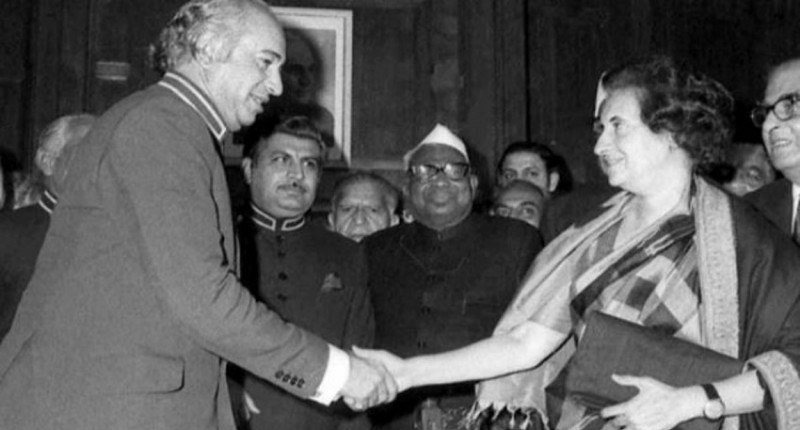
The Simla Agreement of 1972 - A Milestone in Indo-Pak Relations: On July 2, 1972, a significant moment in South Asian history unfolded as former Indian Prime Minister Indira Gandhi and Pakistani President Zulfikar Ali Bhutto signed the Simla Agreement. This landmark treaty was born out of the ashes of the Indo-Pak war of 1971, which resulted in the creation of Bangladesh and significant geopolitical shifts in the region.
Blueprint for Peace and Cooperation
The Simla Agreement was envisioned as a comprehensive framework aimed at fostering friendly relations between India and Pakistan. Its primary objective was to put an end to "conflict and confrontation" and to promote "a friendly and harmonious relationship." The agreement sought to establish durable peace in the subcontinent, enabling both countries to focus their resources and efforts on improving the welfare of their people.
Key Provisions of the Simla Agreement
Bilateral Resolution of Disputes: The agreement emphasized that all disputes between India and Pakistan would be resolved bilaterally through peaceful means. This provision was aimed at reducing external influences and promoting direct dialogue.
Respect for Sovereignty: Both nations agreed to respect each other’s territorial integrity and sovereignty, committing to non-interference in each other's internal affairs.
Line of Control: The agreement delineated the Line of Control (LoC) in Jammu and Kashmir, which both countries pledged to respect without altering it unilaterally.
Withdrawal of Forces: Both sides agreed to withdraw their respective forces to positions held before the conflict of December 1971, thereby reducing military tensions.
Hopes and Challenges
The Simla Agreement was hailed as a significant step toward lasting peace and cooperation in South Asia. It raised hopes for a new era of bilateral relations, where both nations could collaborate on economic development and social progress.
However, the aspirations of the Simla Agreement have not been fully realized. Over the decades, Indo-Pak relations have remained volatile, marred by conflicts, border skirmishes, and political tensions. The agreement's vision of enduring peace and cooperation has faced numerous challenges, often overshadowed by historical grievances and mutual distrust.
Legacy of the Simla Agreement
Despite its limited success in transforming Indo-Pak relations, the Simla Agreement remains a pivotal moment in the history of South Asia. It marked a rare instance where both nations came together to articulate a shared vision for peace and stability. The principles enshrined in the agreement continue to serve as a reference point in diplomatic engagements and peace-building efforts between India and Pakistan.
As we reflect on the Simla Agreement on this day in history, it reminds us of the enduring quest for peace and the complexities of international diplomacy. The journey toward harmonious coexistence between India and Pakistan is ongoing, with the Simla Agreement standing as a testament to the possibilities of dialogue and cooperation.
Celebrating Anisette Day: Discover the Benefits of Anise and Star Anise
This Day in History, June 25: Indira Gandhi Imposes the Emergency: All You Need To Know
This Day in History: The Black Hole of Calcutta, 1756, All You Need To Know